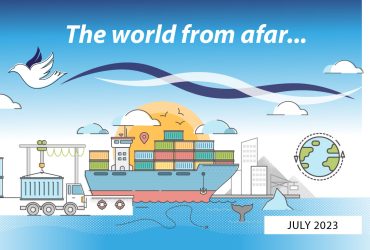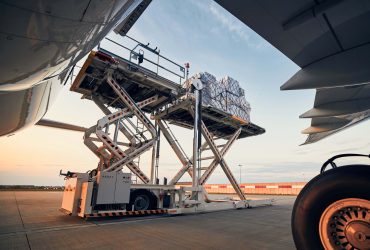Monthly freight round up – June 2023
The halfway point of 2023 saw several huge news stories in the logistics and supply chain world. None more so than the meeting of Rishi Sunak and Joe Biden where the Atlantic Declaration might have been signed but little came to fruition regarding the previously promised trade deal. While this might have disappointed many, there were plenty of other headlines which seemed to impress.
More recently, the UK government announced additional spending would be channelled into the country’s efforts to encourage young people to take up jobs in logistics. And plans to invest in the semiconductor industry to combat global chip shortages were also pleasantly received.
Elsewhere, figures from international ocean carriers showed that reliability has improved YoY with more vessels being on time now compared to those in April 2022. That’s not all though. Here, we look back at some of the biggest happenings in the sector in June.
International trade deals expected to boost supply chain resiliency
June saw a new trade deal agreement confirmed between the UK and Australia which would see the removal of several trade tariffs. The Department for International Trade released a statement which said, “Pivoting towards the Asia Pacific will help diversify our trade, make our supply chains more resilient, and make the UK less vulnerable to political and economic shocks in certain parts of the world.”
It comes as the US and Taiwan also signed a new trade deal at the start of the month which will see measures put in place to streamline border procedures. Officials have also said that the new deal will focus on increasing US exports as well as strengthening relationships between Washington and Taipei.
Elsewhere, three railroad companies – Canadian Pacific Kansas City, CSX, and Genesee & Wyoming – reached a new direct interchange rail connection in Alabama which could bring about more shipping options to businesses as well as a new corridor connecting the expanding markets in the US and Mexico. Kenya and the EU also signed a trade deal to allow the African national duty-free and quota-free access to the European Union market. This deal was the first of its kind since 2016.
Sustainability remains a focus
The Retail Hive conducted an industry survey and found that 72% of retail supply chain leaders consider sustainability as a priority. However, 70% said they didn’t know how much investment was being made across their supply chain in low-carbon or zero-carbon services and products. The survey also found that 100% of all respondents said they would like to see their supply chain partners doing more to help them to provide a greener and more sustainable fulfilment offering.
In other news, more than 40 companies including several logistics firms and big brands like Nike, Curry’s and Nestle have signed a letter addressed to the European Parliament calling for better action regarding the number of zero-emission trucks on the road.
The companies have joined forces in a bid to meet the EU’s 2050 climate neutrality goals as well as reducing emissions by 2030 but are demanding that more zero-emission trucks be manufactured. In the letter, the group has asked for more ambitious zero-emission targets and improved supply chain processes for such trucks.
Supply chain security to be enhanced
Artificial intelligence (AI) and machine learning (ML) is now being used to improve supply chain visibility. It comes as Jaguar Land Rover revealed a collaboration with Everstream Analytics where AI and ML will be used to predict potential risks and the effects this could have on global supply chains.
Once in place, the technology will allow Jaguar Land Rover to oversee and assess activities in real-time, responding to any issues before they become more serious. The move will not only strengthen the company’s supply chain and make it more resilient, but it will also push Jaguar Land Rover towards its target for becoming a pure-electric brand from 2025, reaching carbon net zero by 2039 and reducing its greenhouse gas emissions by 54% across all supply chains and operations.
Walking freight trial underway in the UK
This month, London saw the first walking freight trial with individuals transporting goods on foot using an electric-assisted trolley. Designed to serve urban customers in a more efficient and sustainable way, the trial has so far been a success in the borough of Camden and could be rolled out to other areas soon.
The trial is expected to last until September 2024, and it’s believed several benefits could be experienced including decongestion, improved air pollution, decarbonisation, less road danger and less wear and tear on the roads. What’s more, these improvements could see up to a saving of £37 million every year.
And that’s a wrap…
We’ll be back at the start of August with another overview of everything that’s been going on. In the meantime, if you have any questions about the stories covered above or need support with your current supply chain, please get in touch.


